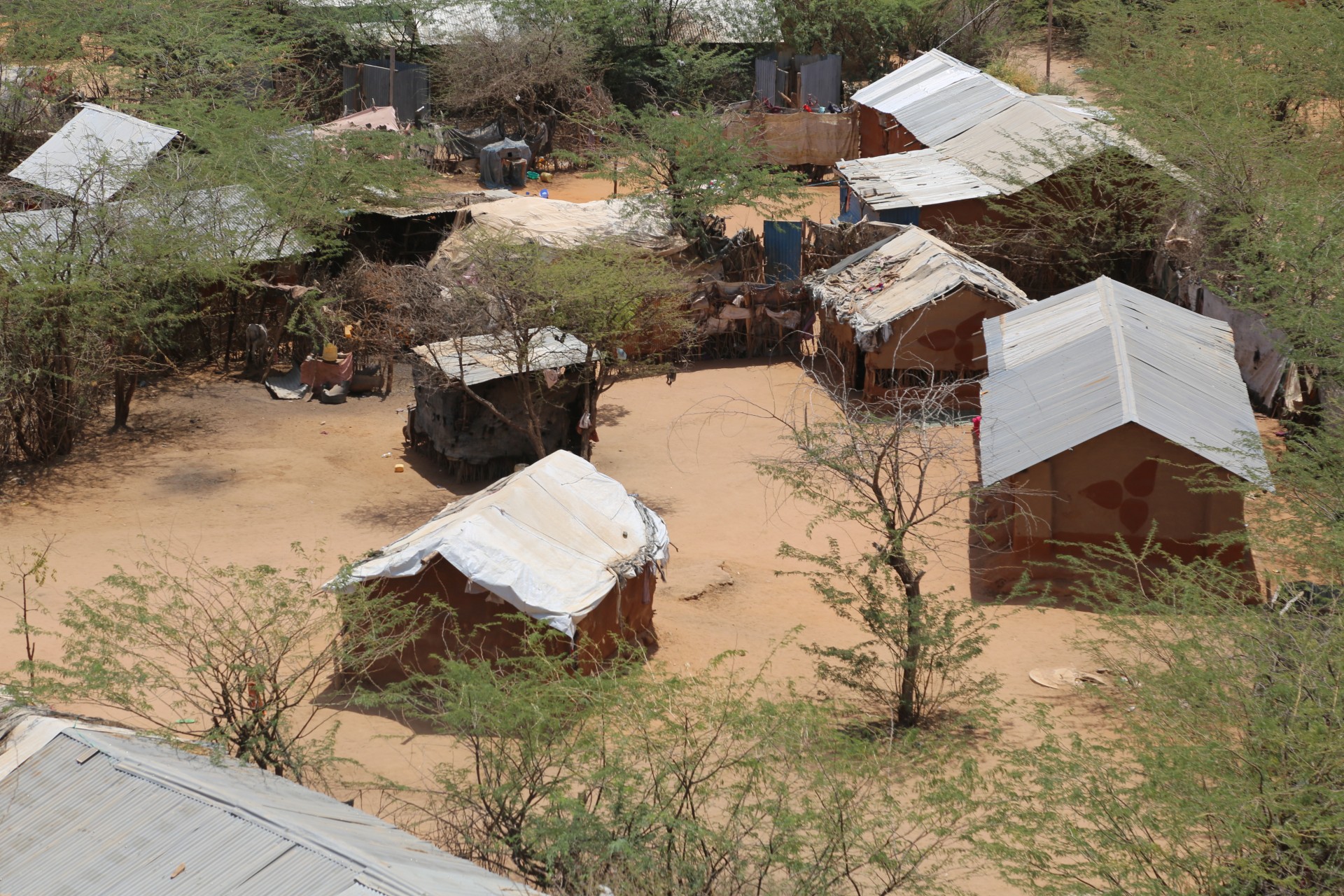Hujale who was a refugee camp resident for years, tells readers that the experience of having to stay in one place during lockdown with uncertainty about what the future holds brought along familiar feelings from his time spent in Kenya’s Dadaab refugee camp.
Hujale and his family fled Somalia and spent years in the Dadaab refugee camp before resettling in the UK.
He compares the experience of being put in a refugee camp to being quarantined. When refugees end up in displacement camps, they are told they’re not allowed to leave. They’re confined to the limited space of the camps and all their actions are under government control.

Alongside being confined into one specific space, Hujale talks about how seeing people hoarding food and toilet paper in supermarkets remind him of queues in refugee camps for monthly food allocations distributed by the UN. He thinks of how people complaining about the lack of certain food items in supermarkets would react to getting food supplies once a month with no control over what you get.
Hujale, says losing his freedom of movement, once again, was the most confronting aspect of COVID-19 related isolation for him. In the Dadaab camp, refugees have to get special permissions to travel to anywhere else, even for urgent medical situations.
Currently, the whole world is focused on the COVID-19 crisis, trying to develop vaccines, provide relief, find sustainable solutions. However, just because an urgent global problem unexpectedly appears doesn’t mean the rest of the world’s problems pause for the time being.

There are still millions of people all across the world living in refugee camps. 79 million people are displaced due to catastrophic events like war and natural disasters. The COVID-19 pandemic comes as an addition to the challenges displaced people live with, making their lives much harder.
People who are displaced, people who are forced to live in refugee camps don’t have access to tools and systems that make it easier to live amidst a global pandemic like the rest of us. If you want to support organisations striving to make life safer, healthier and happier for refugees, you can donate to one or both of the organisations below. Both of these organisations have been vetted by our research team against our custom framework and are amongst the best scoring organisations in their cause areas.
Movement on the Ground
Movement On The Ground works with refugees residing in camps in managing a sustainable response to the refugee crisis that benefits both refugees and host populations. Residents of refugee camps are faced with a great threat as they can’t properly self-isolate and lack access to hygiene facilities, making Movement On The Ground’s work crucial for the ongoing crisis. Currently, they are educating people in the camps about the importance of hygiene for prevention, installing hand sanitizer dispensers and distributing food packs alongside their regular projects.
Samos Volunteers
Samos Volunteers provides support for people living in the Samos refugee camp through various educational programs, services and activities. Samos is one of the most overcrowded refugee camps in Europe. Originally designed for 650 people, there are currently around 6000 residents living in the Samos Hotspot. People usually end up having to spend months and even years in Samos, waiting for the slow bureaucratic process of immigration. Samos Volunteers humanises the lives of residents by offering them services like free laundry and providing safe education, especially to women and children.




